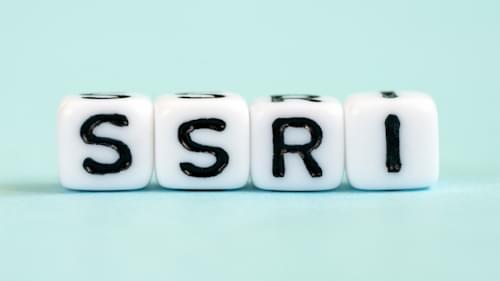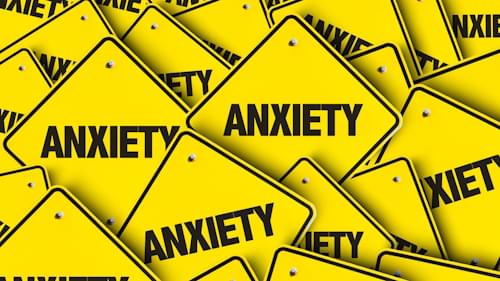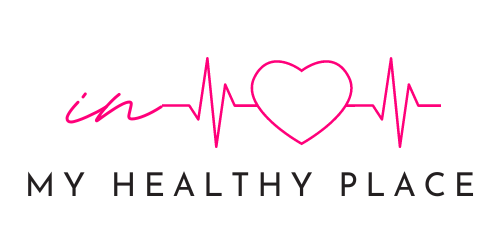Top Safe Anxiety Medications Recommended by Doctors

Anxiety medications are becoming more popular as a way to treat anxiety. Finding the right anxiety medication for you is important, as not all medicines are equal. Fortunately, you can find many safe anxiety medications recommended by doctors.
How to deal with anxiety and its effects on mental health
Living with anxiety can be difficult and detrimental to your mental health. To effectively manage anxiety, it is critical to recognize its signs and symptoms.
While medication is frequently prescribed to treat anxiety disorders, there are other approaches to anxiety that you can incorporate into your daily routine to help you deal with it.
To begin, it is critical to acknowledge that anxiety is one of the most common mental health issues.
Seek assistance and understanding from friends, family, or a mental health professional. Remember that determining the best anxiety medication for you may require trial and error.
Consult your doctor to determine the best medication and dosage to provide relief while minimizing side effects.
Learning how to manage anxiety and its effects on mental health takes time. You can, however, find relief and improve your overall well-being with the right combination of medication, lifestyle changes, and support.
Types of Anxiety Medications
Several common anxiety medications are available to help individuals manage their anxiety symptoms.
Benzodiazepines

Benzodiazepines are one of the most commonly prescribed medications for anxiety.
Benzodiazepines are sedative anxiety disorder medications that are commonly prescribed for short-term use due to their potential for dependence and tolerance.
They can provide rapid relief from anxiety symptoms, which is particularly useful in acute situations or during a panic attack.
They make GABA (gamma-aminobutyric acid) work better in the brain, which makes you feel calm and sleepy. Some of the most common benzodiazepines prescribed for anxiety are Xanax, Ativan, Valium, and Klonopin.
These medications can help relieve symptoms like worry, restlessness, tight muscles, and trouble sleeping.
They can have side effects like sleepiness, dizziness, or confusion and can interact with other medications and substances.
It is crucial to inform your doctor about any other medications you take. Benzodiazepines can help manage anxiety, but they should be used cautiously and as part of a comprehensive treatment plan that may include therapy and lifestyle changes.
Always consult with a professional to determine if benzodiazepines are the right choice for you.
SSRIs:

If you're struggling with anxiety, you may be familiar with selective serotonin reuptake inhibitors (SSRIs). These medications are commonly prescribed for treating anxiety disorders and have proven effective in managing symptoms.
SSRIs work by making the brain make more serotonin. Serotonin is a neurotransmitter that controls mood.
SSRIs restore the balance of serotonin to make people feel better and less anxious. SSRIs are an excellent choice for people with chronic anxiety who need to take them for a long time. Prozac, Zoloft, and Lexapro are all generic SSRIs.
It's important to note that, like any medication, SSRIs can have side effects, including nausea, headaches, and sexual dysfunction. However, these side effects are usually temporary and often diminish over time.
Antidepressant medications

Atypical antidepressants are a third option for treating anxiety and can effectively manage symptoms, especially for individuals who have not responded well to other medications.
Unlike benzodiazepines or SSRIs, atypical antidepressants work by altering the levels of certain brain chemicals involved in mood regulation. This can help alleviate anxiety symptoms and improve overall well-being.
Some common atypical antidepressants used to treat anxiety include tricyclic antidepressants (TCAs), such as imipramine and amitriptyline, as well as serotonin-norepinephrine reuptake inhibitors (SNRIs), like venlafaxine and duloxetine.
These medications can be particularly helpful for individuals who experience both anxiety and depression. It's important to know that side effects from antidepressants can include sleepiness, dry mouth, and blurred vision.
However, these side effects are often temporary and tend to subside over time.
Buspirone:

Buspirone is a safe and effective anti-anxiety medication often prescribed for long-term use. It is especially beneficial for individuals seeking relief from anxiety symptoms without experiencing sedation or dependence.
Unlike benzodiazepines, buspirone works by increasing the levels of serotonin and dopamine in the brain.
This helps regulate the mood and alleviate anxiety symptoms. It is a non-addictive medication, making it a suitable option for those concerned about dependence.
Buspirone is commonly prescribed for generalized anxiety disorder (GAD) and can help reduce excessive worrying, restlessness, and irritability. It can also be used to treat social anxiety disorder and panic disorder.
When you first start taking buspirone, it's important to know that it may take a few weeks for the drug to work as well as it should. In order to make sure the medicine works well for you, it's important to take it as prescribed and talk to your doctor regularly.
As with any medication, buspirone may cause side effects such as dizziness, headaches, and nausea. However, these side effects are generally mild and tend to subside over time.
When finding the best anxiety medication for you, it's important to understand the different types available. Doctors frequently prescribe several common anxiety medications to help manage anxiety disorders.
What is a safe drug for anxiety?
Generally, the safest drug for anxiety is considered to be selective serotonin reuptake inhibitors (SSRIs), such as Prozac or Zoloft. These medicines make the brain produce more serotonin, which helps control mood and lower anxiety. SSRIs are generally well tolerated and have a lower risk of dependence or addiction than other anti-anxiety medications.
What happens after taking anxiety pills?
The anxiety pill's side effects can vary depending on the patient and the medication. Some of the most common side effects are sleepiness, dizziness, blurry vision, dry mouth, and headaches. These symptoms are usually mild and temporary, but seeing a doctor is important if they persist or worsen.
Anxiety medications can occasionally cause more serious side effects such as difficulty breathing, chest pain, a fast heartbeat, or an allergic reaction. If you are experiencing any of these symptoms, immediate medical attention should be sought.
Additionally, anxiety pills can have psychological side effects like confusion, memory problems, and changes in mood or behavior. It's crucial to monitor any unusual or concerning changes and report them to a healthcare professional.
It's essential to note that not everyone will experience these side effects, and the benefits of anxiety medication often outweigh the risks for many individuals. Nonetheless, discussing any concerns or questions with a healthcare provider before starting or adjusting any anxiety medication regimen is vital.
Alternative Treatments for Anxiety Disorders

You're not alone if you're looking for alternative treatments for anxiety disorders. Many individuals prefer to explore non-medication options to manage their anxiety symptoms. While anxiety medication can be effective, some people may prefer alternative treatments before taking medication. There are several options available that have shown promise in helping to alleviate anxiety symptoms.
CBT
One alternative treatment for anxiety is cognitive-behavioral therapy (CBT). CBT therapy focuses on finding and changing bad ways of thinking and acting that cause anxiety. It can help individuals develop coping mechanisms and strategies to manage their anxiety symptoms.
Mindfulness
Another alternative treatment is mindfulness meditation. This practice involves paying attention to the present moment and becoming more aware of your thoughts and feelings without judging them. Mindfulness meditation has been shown to help reduce anxiety and stress, improve mood, and improve overall well-being.
Anxiety alternative treatments
Other alternative treatments for anxiety include acupuncture, yoga, and herbal supplements. To balance and relieve anxiety, acupuncture inserts thin needles into specific body points.
Yoga combines physical postures, breathing exercises, and meditation to promote relaxation and reduce anxiety. Herbal supplements such as chamomile, lavender, and passionflower have been used for centuries to help calm the nervous system and reduce anxiety.
Managing Anxiety Without Medication
Managing anxiety without medication is possible for many individuals. While medication can be an effective method for treating anxiety, it is not the only option. Several strategies and techniques can help alleviate anxiety symptoms and improve overall well-being. One approach is therapy, specifically cognitive-behavioral therapy (CBT).
CBT targets negative thought patterns and behaviors that cause anxiety. It can teach individuals new coping mechanisms and provide tools to manage anxiety symptoms. Support from friends, family, or support groups can also be beneficial for managing anxiety without medication. Connecting with others who understand and can provide guidance can be comforting and help individuals feel less alone in their struggles.
It's important to remember that managing anxiety is a personal journey, and what works for one person may not work for another.
Seeking Help for Anxiety Disorders
If you're struggling with anxiety, seeking help is an important step toward finding relief. Anxiety disorders can severely impact your life and well-being, so seeking help is essential.
One of the first steps in seeking help for anxiety disorders is recognizing the signs and symptoms. Therapy can be particularly beneficial in teaching techniques to challenge negative thought patterns and manage stress. Family and friend support can help manage anxiety in addition to therapy.
Sharing your struggles with trusted loved ones can provide comfort and understanding. If you're uncomfortable sharing with friends or family, there are also support groups or online communities where you can connect with others going through similar experiences.
It's important to remember that seeking help for anxiety disorders is a brave and necessary step toward improving your mental health.
There's no shame in seeking help; with it, you can better manage your anxiety and improve your health.

